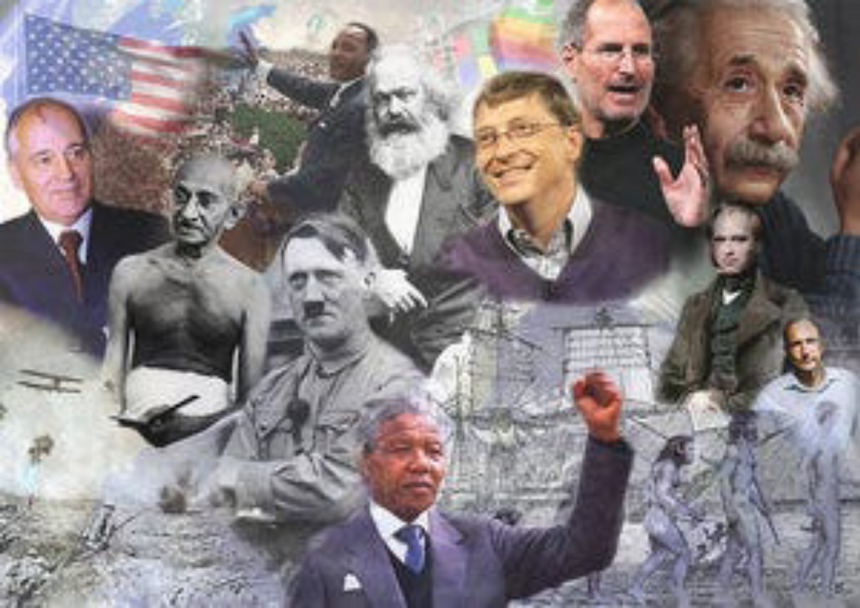History is replete with individuals who have left an indelible mark on the world through their actions, ideas, and legacies. These historical figures, ranging from political leaders to artists and scientists, have shaped the course of human events and continue to inspire generations. Here, we explore some of the most famous historical figures whose contributions have transcended time and place.
Julius Caesar
Julius Caesar, the Roman general and statesman, is one of history’s most prominent figures. Born in 100 BC, Caesar’s military genius and political reforms significantly transformed the Roman Republic, paving the way for the Roman Empire. His conquest of Gaul expanded Rome’s territory, and his crossing of the Rubicon River in 49 BC marked the beginning of a civil war that ultimately led to his dictatorship. Despite his assassination on the Ides of March in 44 BC, Caesar’s influence endured, shaping the future of Roman governance and culture.
Cleopatra
Cleopatra VII, the last active ruler of the Ptolemaic Kingdom of Egypt, is renowned for her intelligence, political acumen, and romantic liaisons with Julius Caesar and Mark Antony. Born in 69 BC, Cleopatra’s reign was marked by efforts to restore Egypt’s former glory and independence from Rome. Her dramatic life and tragic death have made her a subject of fascination and legend, immortalized in countless works of art and literature.
Leonardo da Vinci
Leonardo da Vinci epitomizes the Renaissance man, excelling as an artist, scientist, and inventor. Born in 1452 in Vinci, Italy, Leonardo’s masterpieces, such as “The Last Supper” and “Mona Lisa,” showcase his extraordinary artistic talent. His notebooks reveal a mind of unparalleled curiosity and ingenuity, filled with sketches and ideas that anticipated modern technology. Leonardo’s contributions to art, science, and anatomy have left a lasting legacy that continues to inspire awe and admiration.
Joan of Arc
Joan of Arc, the young French peasant girl who led her country’s army to several important victories during the Hundred Years’ War, is a symbol of courage and faith. Born in 1412, Joan claimed to have received visions instructing her to support Charles VII and reclaim France from English domination. Her leadership and determination were instrumental in lifting the Siege of Orléans, but she was captured, tried for heresy, and burned at the stake in 1431. Joan of Arc was canonized as a saint in 1920, and her story remains a powerful testament to bravery and conviction.
George Washington
George Washington, the first President of the United States, is often hailed as the “Father of His Country.” Born in 1732, Washington’s leadership during the American Revolutionary War and his role in drafting the Constitution were pivotal in establishing the new nation. As president, he set many precedents that still influence the office today. Washington’s legacy as a leader of integrity and vision is enshrined in American history and culture.
Paintings of Famous Historical Figures
Art has always played a crucial role in documenting and immortalizing the lives of historical figures. Portraits and paintings offer a glimpse into their personas, attire, and the eras they lived in, capturing moments that words alone cannot convey. For instance, the iconic portrait of George Washington by Gilbert Stuart has become a defining image of the first U.S. president, symbolizing his steadfast leadership and enduring legacy.
Similarly, Leonardo da Vinci’s own self-portrait, sketched in red chalk, provides insight into the visage of the genius himself. These artistic representations are not merely decorative; they are historical documents that offer a visual narrative of the past. To view a wide array of these portraits and paintings, one can explore here: 1st-art-gallery, where masterpieces of history’s most famous figures are meticulously reproduced for contemporary appreciation.
Mahatma Gandhi
Mahatma Gandhi, the leader of India’s non-violent independence movement against British colonial rule, is a global symbol of peace and justice. Born in 1869, Gandhi’s philosophy of non-violence, or “Satyagraha,” inspired mass civil disobedience and ultimately led to India’s independence in 1947. His teachings have influenced civil rights movements worldwide, making him one of the most revered figures in modern history.
Albert Einstein
Albert Einstein, the theoretical physicist who developed the theory of relativity, is often regarded as one of the greatest scientists of all time. Born in 1879 in Germany, Einstein’s groundbreaking work in physics revolutionized our understanding of space, time, and energy. His famous equation, E=mc², has become synonymous with scientific genius. Beyond his scientific achievements, Einstein was a passionate advocate for peace and human rights, leaving a legacy that transcends the realm of science.
Nelson Mandela
Nelson Mandela, the anti-apartheid revolutionary and first black president of South Africa, is celebrated for his role in dismantling institutionalized racism and fostering reconciliation in his country. Born in 1918, Mandela spent 27 years in prison for his activism before leading South Africa to democracy in 1994. His commitment to justice, equality, and forgiveness earned him a global reputation as a symbol of resilience and hope.
Marie Curie
Marie Curie, the pioneering physicist and chemist, made history as the first woman to win a Nobel Prize and remains the only person to win Nobel Prizes in two different scientific fields (Physics and Chemistry). Born in 1867 in Poland, Curie’s research on radioactivity opened new frontiers in science and medicine. Her discoveries, including the elements polonium and radium, have had a profound impact on scientific research and medical treatments.
Conclusion
The lives and achievements of these historical figures demonstrate the extraordinary impact individuals can have on the world. From military leaders and monarchs to scientists and activists, their legacies continue to shape our understanding of history and inspire future generations. As we reflect on their contributions, we recognize the enduring power of human ingenuity, courage, and perseverance.


